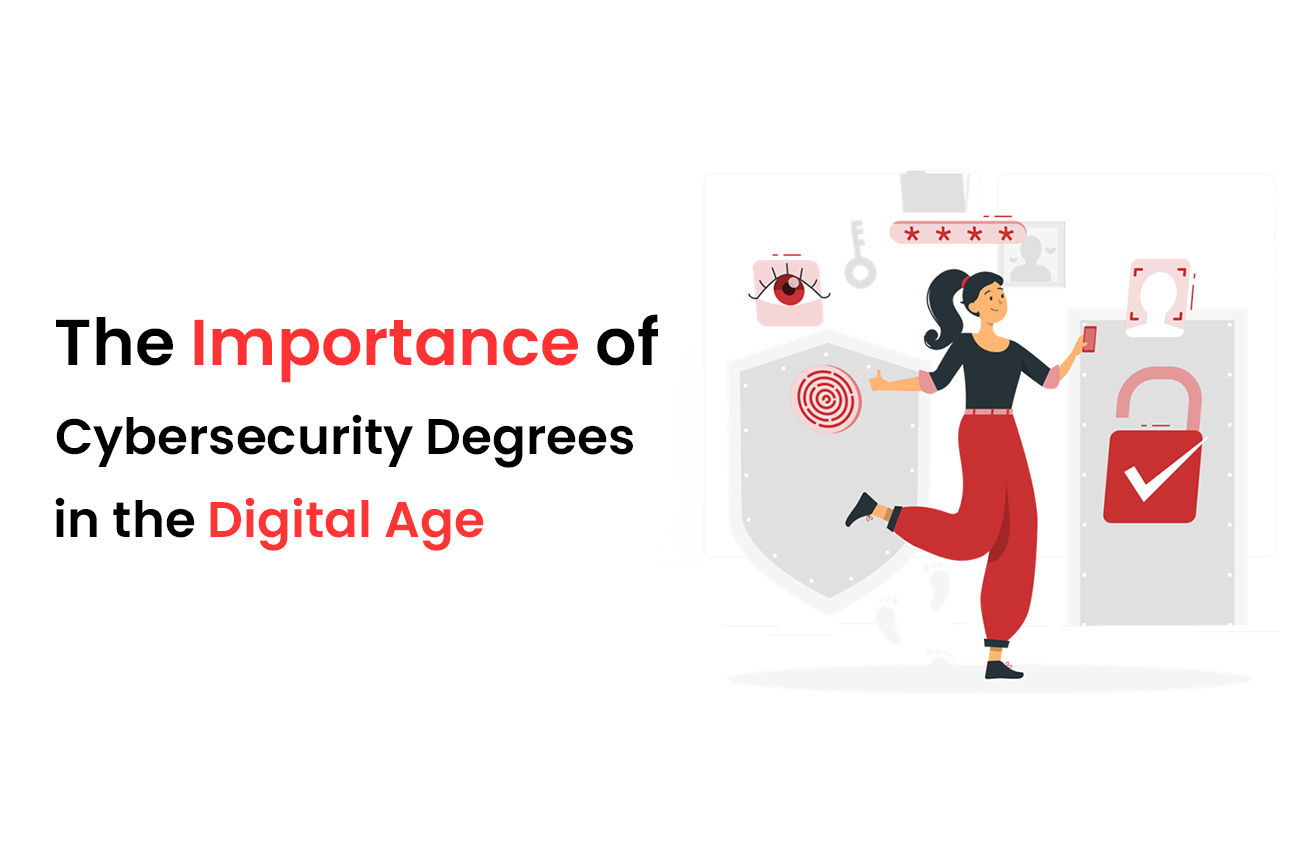
The Importance of Cybersecurity Degrees in the Digital Age
In today's fast-paced digital world, the fear of cybercrimes and data breaches is a serious concern, highlighting the importance for strong cybersecurity measures. This emphasizes the importance of cybersecurity degrees for individuals and organizations looking to strengthen their defenses against cyber threats.
Here, we will explore the increasing significance of cybersecurity education, its pivotal role in preventing digital adversaries, and the various career opportunities it presents.
The Crucial Role of Cybersecurity Education
Cybersecurity education involves an intricate blend of practices, cutting-edge technologies, and strategic methodologies to safeguard online data. With cyber threats growing more frequent and complex, the need for skilled cybersecurity professionals is rising.
-
Foundational Expertise: A cybersecurity degree provides a comprehensive understanding of core principles, technologies, and protocols essential for erecting resilient defense mechanisms against cyber intrusions.
-
Practical Application: Through hands-on simulations and laboratory sessions, cybersecurity programs bridge theoretical knowledge with practical experience, equipping students with the insight to tackle real-world scenarios.
-
Professional Advancement: A cybersecurity degree is a testament to one's commitment to the field and proficiency in critical defensive skills, offering a competitive edge in the job market.
-
Career Progression: Armed with a cybersecurity degree, individuals can chart a trajectory toward various career opportunities and leadership roles across diverse sectors.
Battling Cyber Threats Through Education
The landscape of cyber threats is constantly in flux, evolving in sophistication and posing grave risks to personal, corporate, and national security. Cybersecurity education empowers professionals with the tools and techniques to combat these evolving threats effectively.
-
Navigating Digital Threats: Students gain expertise in identifying, analyzing, and mitigating various cyber threats and crimes, including malware and phishing attacks to ransomware.
-
Defensive Strategies: Cybersecurity coursework imparts knowledge on deploying robust security protocols and encryption measures to fortify networks and safeguard sensitive information.
-
Crisis Management: Cybersecurity programs equip individuals to respond swiftly to cyber incidents by preparing them to investigate breaches, mitigate damages, and restore system integrity.
-
Regulatory Compliance: Understanding cybersecurity laws and standards is imperative for ensuring organizational adherence to legal requirements and industry best practices.
Career Opportunities in Cybersecurity
The growing technological advancement and the escalating threat landscape have fueled a surging demand for cybersecurity professionals across all industries. Armed with a specialized degree, graduates can explore diverse career avenues, including:
-
Security Analyst: Responsible for monitoring and enhancing security protocols to preempt vulnerabilities and thwart potential attacks.
-
Ethical Hacker: Utilizes simulated cyber assaults to identify and fortify system weaknesses, bolstering defense mechanisms.
-
Security Consultant: Offers tailored guidance on security measures, risk mitigation, and compliance adherence to diverse organizations.
-
Incident Responder: Manages cyber incidents, investigates security breaches, and devises recovery strategies to restore system functionality.
-
Cryptographer: Designs intricate cryptographic algorithms to ensure data confidentiality, integrity, and authentication.
-
Security Architect: Designs resilient network infrastructures and application frameworks to repel online threats effectively.
In today's world, with the increasing number of cyber-attacks, it is imperative to have a formal education in cybersecurity. Securing a cybersecurity degree helps individuals develop the necessary skills to effectively address digital threats and opens up numerous high-in-demand career opportunities. In an era where technology is a major part of our lives, expertise in cybersecurity has become increasingly essential. Therefore, the significance of cybersecurity degrees has increased like never before.
